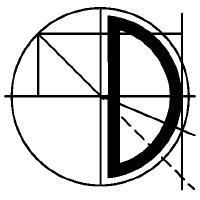Mastersthesis,
Self-Learning Forecast Method Selection
University of Würzburg, Am Hubland, Informatikgebäude, 97074 Würzburg, Germany, Master Thesis, (November 2016)
Abstract
Which weather will it be tomorrow? Which product will be most purchased next month? When do you have to order additional material to guarantee your production process? How will your stock value develop? In many areas, forecast methods are used to estimate future developments. Many different models have been developed over the years, each of them having their own strengths and weaknesses. An efficient selection of an appropriate method is therefore a complex process that requires expert knowledge and experience. In times of Big Data - going along with increasing application possibilities of forecasting - more and more cases occur with limited expertise. Along with the commonly applied trial-and-error procedure, this leads to inefficient and time-consuming operational processes. A convenient solution to this problem is the approach to automate the forecast method selection. Therefore, a machine-learning algorithm is used to generate a ruleset which recommends a well-performing method based on the characteristics of a time series. Several works exist on the topic of automated rule generation for forecast method selection. We extend these by considering additional forecast methods and different machine-learning techniques. Also, we emphasise on an elaborate evaluation, which many of the previous work lack. Furthermore, it is planned to provide the program code under an open source licence, giving future work the opportunity to base on this thesis. First, the characteristics of the training data are calculated. Afterwards, we analyse which methods deliver good forecasts on which datasets. Based on these results, we use the machine-learning approaches to generate the rulesets that are later used for forecast method recommendation. Then, we evaluate the different results by testing them on new datasets. Additionally, we measure the runtime of each approach and analyse the reduction of the computing time. The results show that the recommendation quality of all approaches is slightly, but not convincingly better than a random choice of forecast method. The runtime of all approaches are signicantly lower compared to running all methods simultaneously.
Tags
- descartes
- online_monitoring_and_forecasting
- se2_mastersthesis
- supervised_by_nikolas_herbst
- thesis_supervised_by_se_member
- wcf
